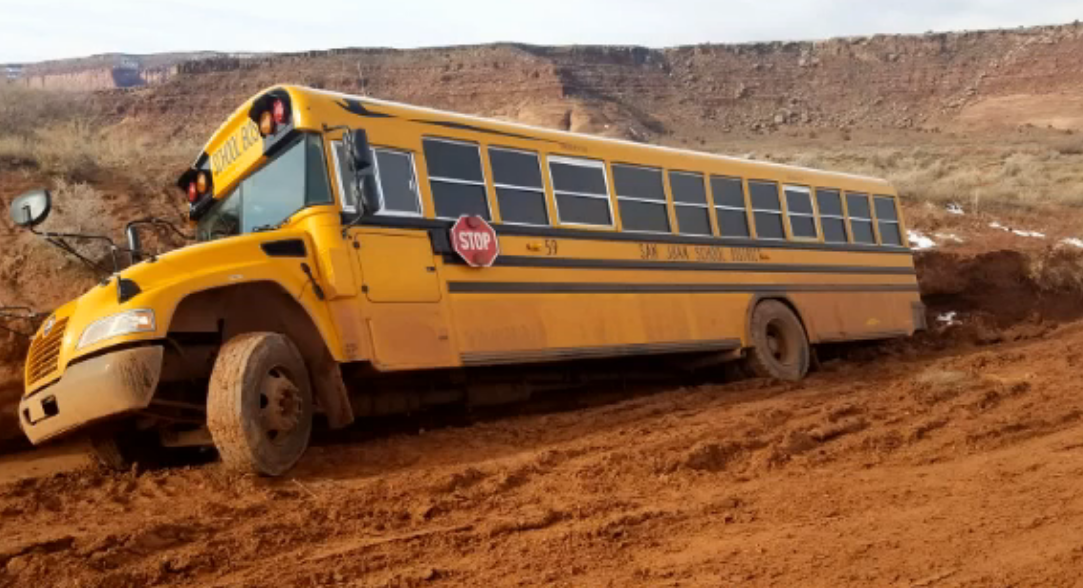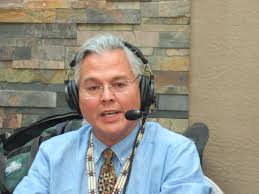
- Details
- By Aaron Payment
Opinion. It is especially gratifying to see President Joe Biden lead in pushing to address the nation’s aging infrastructure with roads, bridges, water systems, schools, newer and greener energy platforms, public transit and high-speed rail, and much needed technology and broadband upgrades. President Biden’s and key members of Congress' announcement of a compromise deal for $1.2 trillion American Job’s Infrastructure plan will bring an additional $12 billion to Indian Country and a total appropriation to Indian County to historical levels to more than $44 billion dollars in the first year of this Administration and Congressional session.
As chairperson of the largest tribe east of the Mississippi River, the Sault Ste. Marie Tribe of Chippewa Indians, and 1st Vice President of the National Congress of American Indians (NCAI), I routinely remind the White House, Senate and the House to recognize and honor the federal treaty and trust obligation due to the over 500 million acres of land ceded in exchange for “health, education and social welfare” into perpetuity.

During the 2020 Presidential campaign and during the Biden presidential transition, tribal nations collectively pushed for a cabinet post, our share of the American Rescue Act, full funding (mandatory and advanced appropriations) and inclusion in an infrastructure package. So far, we have done well under a Biden-Harris Administration.
Here are a few “glows and grows”:
GLOWS:
- Biden’s Presidential Memo on extending EO 13175 on Tribal Consultation with deadlines was monumental and issued within the first five days of office;
- With Secretary Deb Haaland’s nomination and confirmation as the secretary of the Interior, she became the first Native American to serve as a presidential cabinet secretary, which was historic;
- $2.5 billion proposed increase in the President’s first Indian Health Service (HIS) budget submitted to Congress;
- $31 billion in Rescue Act Funds and deadline extension of Cares Act funding;
- $1 B for broadband ushered through by Vice President Kamala Harris, the White House and Treasury Dept.;
- With Biden-Harris proposed select mandatory and advanced appropriations, we are taking not steps, but great leaps forward.
- Now, $12 billion more in proposed infrastructure funds — broadly $6 billion for water, sewer and sanitation; $4 billion for Bureau of Indian Affairs (BIA) roads and bridges; and plus $2 billion more for broadband — and eligibility for additional funds to states, territories and tribes.
We still have work to do but I am gratified that we are working our way through the tick sheet.
Here are a few additional policy items (Grows) deserving our attention:
GROWS:
- Violence Against Women Act (VAWA) reauthorization with key Indian Country provisions;
- Clean Carcieri fix;
- Full participation by Indian Country in key provisions of the Affordable Care Act including “Indian Health Care Portability” through automatic enrollment of American Indians in Medicaid expansion and the exchange under a 51st state concept;
- Indian education reform for our American Indian students (7 percent under the Bureau of Indian Education (BIE) and the 93 percent under the Department of Education) including self-governance-like education tribal grant schools for districts who have statistically significant lower Native American student graduation rates;
- Missing and murdered Indigenous people (MMIP) tribal pilots and permanence and Indian boarding school reconciliation and repatriation as the first MMIP at the hands of federal Indian policy;
- Permanently institutionalizing the White House Counsel and codifying an accountability measure for tribal consultation, Tribal Advisories and Budget Formulation for cogent federal Indian policy that transcends Presidential administrations; and
- Administrative leadership in a federal Tribal Action Plan for ameliorating the legacy of Federal Indian Policy that led to historical and intergenerational trauma as evidenced through the U.S. Civil Rights Commission Broken Promises Report.
Specific and quantitative benchmarks need to be established to ensure positive change and measurable success. Just a reminiscence from my college professor days (teaching policy, political science and native studies) on how policy soup becomes political platforms and subsequently administrative agendas. The first step in this process, however, is the advocacy and direct representation tribal leaders are called upon to do to honor our ancestors and prepare for future generations.
Sault Ste. Marie of Chippewa Indians Chairperson Payment, a high school dropout at 15, earned a GED at 16 and entered college at 17. Dr. Payment holds a doctorate degree in education, a master’s in education specialist, a master’s in education administration and a master’s in public administration. He also serves as the 1st vice president of the National Congress of American Indians, president of the Midwest Alliance of Sovereign Tribes, and president of the United Tribes of Michigan.
Help us defend tribal sovereignty.
At Native News Online, our mission is rooted in telling the stories that strengthen sovereignty and uplift Indigenous voices — not just at year’s end, but every single day.
Because of your generosity last year, we were able to keep our reporters on the ground in tribal communities, at national gatherings and in the halls of Congress — covering the issues that matter most to Indian Country: sovereignty, culture, education, health and economic opportunity.
That support sustained us through a tough year in 2025. Now, as we look to the year ahead, we need your help right now to ensure warrior journalism remains strong — reporting that defends tribal sovereignty, amplifies Native truth, and holds power accountable.
 The stakes couldn't be higher. Your support keeps Native voices heard, Native stories told and Native sovereignty defended.
The stakes couldn't be higher. Your support keeps Native voices heard, Native stories told and Native sovereignty defended.
Stand with Warrior Journalism today.
Levi Rickert (Potawatomi), Editor & Publisher
